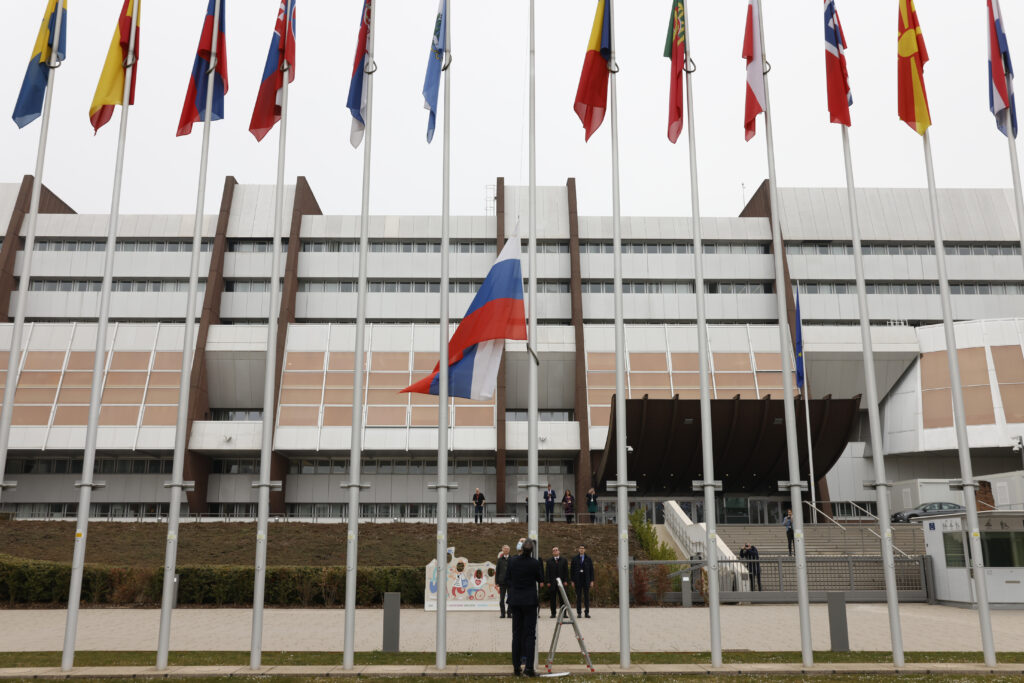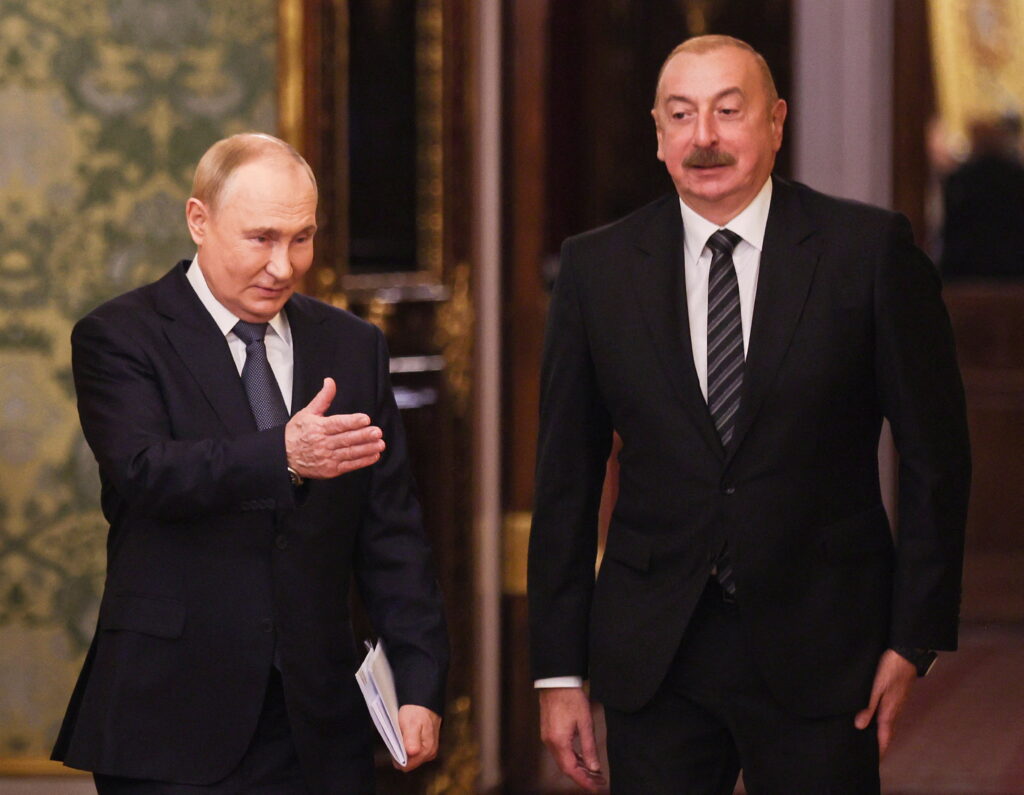Cybersecurity will be a salient aspect of the incoming Biden Administration’s Russia policy. Unfortunately, there will hardly be much trust or goodwill between the two nations on this topic. Indeed, the spectral presence of Russian hackers in the US elections of 2016 is still raw for Biden and his Democratic Party, and that came amid years of mutual suspicions relating to all manner of online international cyber crime.
A New Code War
Any attempts to build understanding over the last decade have been short lived. In 2013, Barack Obama and Vladimir Putin agreed to establish a hot line for exchanging information about threats and incidents in cyberspace between Kremlin and the White House; the pair also set up permanent working group for discussing cybersecurity issues. On the eve of the Ukraine crisis, both Moscow and Washington reported that cooperation would be very promising. The following year, this agreement was terminated along with many other tracks of cooperation, due to Russia’s actions in Ukraine.
Even so, Russia has been active in putting forward resolutions on internet governance to the United Nations. But US diplomats have been skeptical that these are made in good faith and do not back them. Most recently in September 2020, Russia suggested another agreement on cybersecurity which included a commitment on non-interference. In response, Secretary of State Mike Pompeo called Russia «one of the global internet’s greatest disruptors». Assistant Attorney General for National Security John Demers said that the «proposal is nothing more than dishonest rhetoric and cynical and cheap propaganda.»
One more fundamental reason the US has disapproved of Russian plans to regulate the internet comes from a different view of government’s role in cyberspace. The Kremlin’s view of stable cyberspace is based on the concept of government control over the infrastructure and the contents of information. The American approach still invokes an ideal of a free internet.
That said, the US has worked closely in negotiating the issue of governance within the framework of Group of Government Experts (GGE). By 2018, Russia suggested an alternative for such discussions — the Open Ended Working Group (OEWG). The same year the United States introduced a competing resolution, which reinstated the GGE as a platform. The two UN bodies were supposed to complement each other, not to compete. Because of COVID-19, OEWG was not able to finalize its work, while the GGE’s activities were initially scheduled for two years.
In 2020, Russia and the United States again introduced two resolutions. In 2018 the number of co-sponsors of Russian resolution was bigger compared to the American one. But in 2020, the US resolution got more cosponsors and more votes. In any case, both resolutions were adopted. Russia insisted on re-establishing the OEWG — and extending its mandate for 5 years. (Russia’s proposal was met as «counterproductive» in the American expert community.)
The US resolution, meanwhile, confirmed the GGE as the key platform for discussing the internet governance and international cybersecurity issues. Russia’s official position to this remains uncompromisingly opposed. Its view is that the only model of internet governance which can guarantee security and stability is the one suggested by Russia.
What this back and forth shows is how world is dividing into two camps. Western democracies in one; Russia, East Asia, Africa in the other. The table below demonstrates the digital divide, which is now not only about technological infrastructure, but also about political regulations and international position on internet governance. The table contains the average of the key UN ICT development indexes, World Bank infrastructure indicators and Freedom House’s Global Freedom rating among the cosponsors of US and Russia sponsored resolutions in 2018 and 2020. It shows how nations who advocate American resolution are more technologically advanced, and demonstrate a more efficient performance in dealing with the challenges of cyberspace, compared to those who have cosponsored Russian resolution. Obviously, there is clear borderline between the nations which pursue excessive government like Russia’s «sovereign internet» or Chinese «Great Firewall» and those who promote the freedom of speech, and a democratic internet.

Even though in 2020 both resolutions were adopted again, it is not clear how the whole process will proceed. Both resolutions again proposed two different platforms for further discussions of internet governance. It is interesting, that France, which cosponsored the US resolution in 2018, in 2020 initiated a «Plan of Action» — an attempt to reconcile the two competing negotiation platforms. The Plan of Action was supported by many other countries, including those who cosponsored the Russian and American resolutions. It is also unclear how the Plan of Action will proceed.
Escalation or detente?
How will the Biden Administration approach this? Cybersecurity has been a subject of disagreement between Republicans and Democrats. Donald Trump’s crusade against the media and social networks was reaching its peak at the end of 2020. The president tried to enhance control over the content distributed by social media platforms. It is unlikely the Biden administration would continue these policies. However, the increasing political role of social media and the internet will become a serious challenge for Biden. Most likely, the Democratic administration would be less focused on the development of offensive military cyber capabilities and rather push the political use of ICTs. Democrats may opt for political measures to guarantee confidentiality, privacy, net neutrality. Election integrity would also be a priority under the Biden Administration.
The developments on cybersecurity in Russian-American relations will be both bilateral and multilateral. It seems the cybersecurity agenda in Russian-American relations during the Biden administration will have four key issues. Despite how the contradictions on cybersecurity would remain under Biden, there is a small chance the US and Russia would be able to find some cooperative measure to address the issue through a constructive dialogue.
- Election interference. Russia and the United States have been accusing each other of interfering in elections and domestic affairs for a long time. It is critical to seek a mutually acceptable form of bilateral dialogue, instead of expelling diplomats and prohibiting cooperation between civil societies.
- Military cyber attacks. If the Democratic administration really intends to shift the military cyber capabilities focus from offense to defense, there is a chance to include the cybersecurity issues in the arms control agenda. There might be a good chance to agree on a common understanding of cyber technologies available for military use.
- Cyber crime. There are no hopes that the scope and sophistication of international cyber crime will wane. The problem requires a global solution. Russia and the United States both have a good record in dealing with the problem on a domestic level. To improve protection from cyber crime, Moscow and Washington should enhance the cooperation between law enforcement agencies for joint prosecution and investigation.
- Internet governance. It is obvious the United Nations will remain the battleground for Russian and American proposals on internet governance. The world would become more and more divided if Moscow and Washington continue to promote different models of internet governance. At the same time, if Russia and the US manage to find common vision on the issue, cyberspace could become safer.










